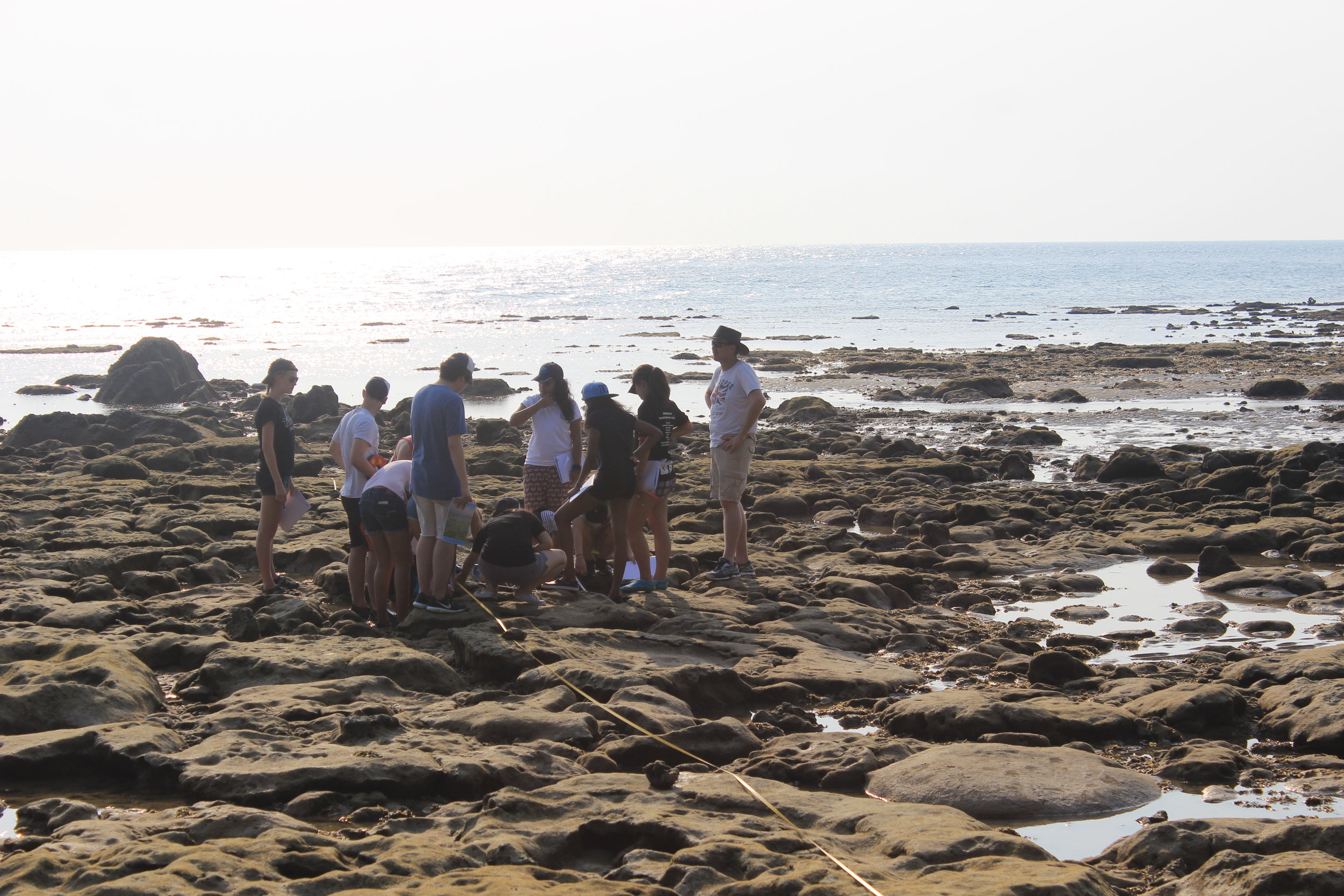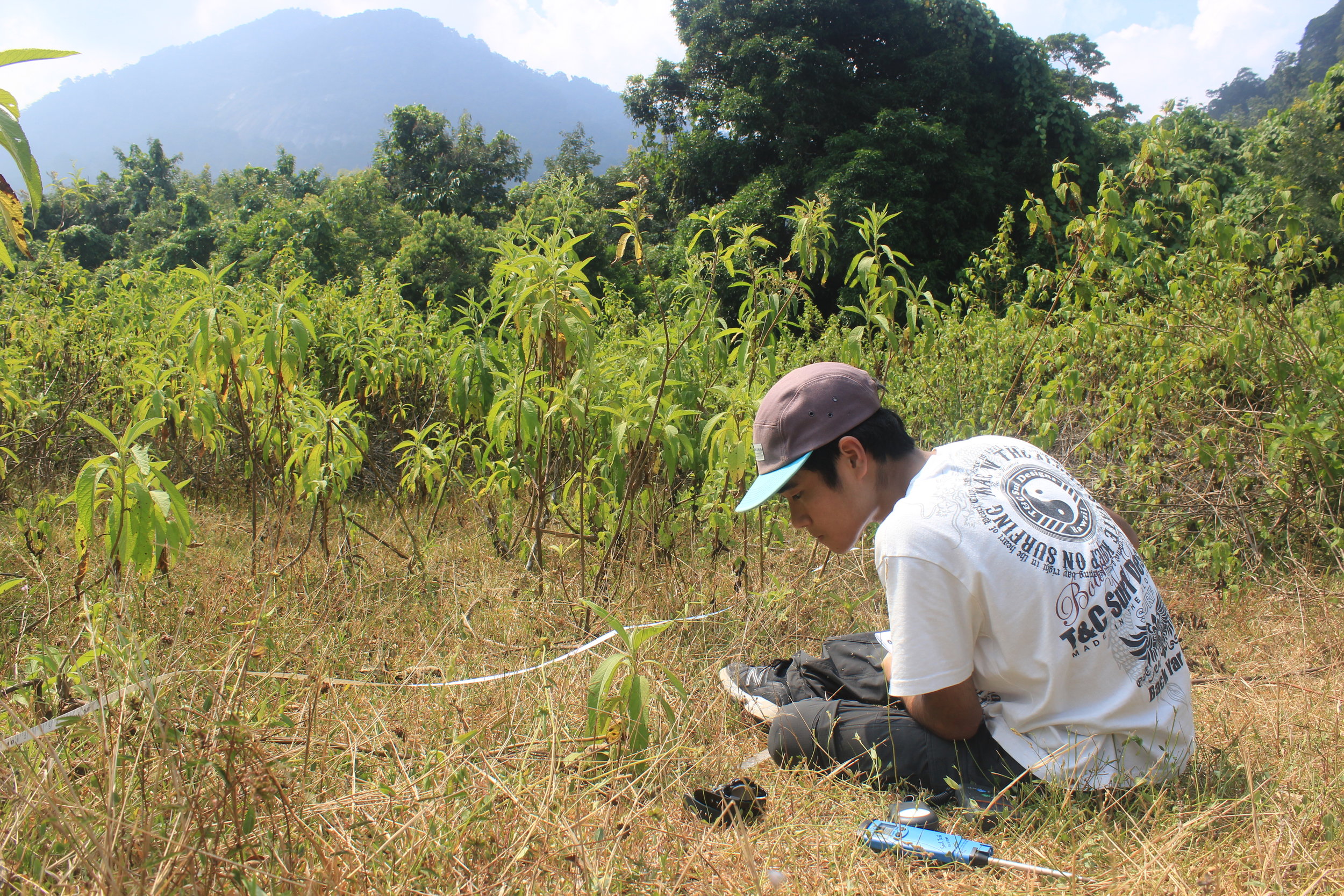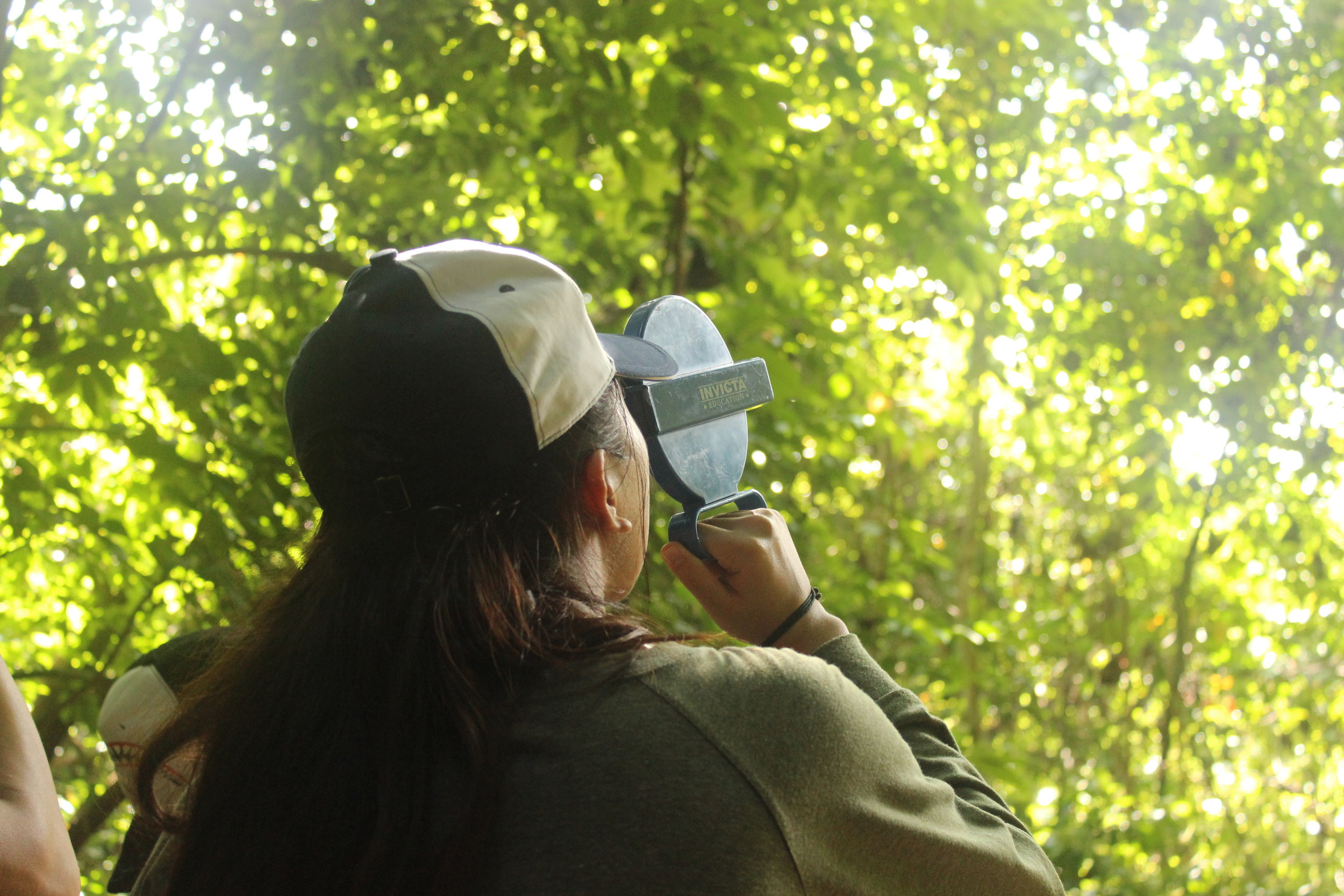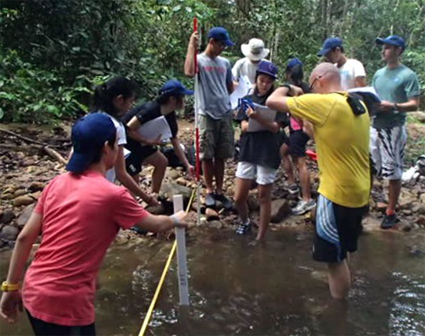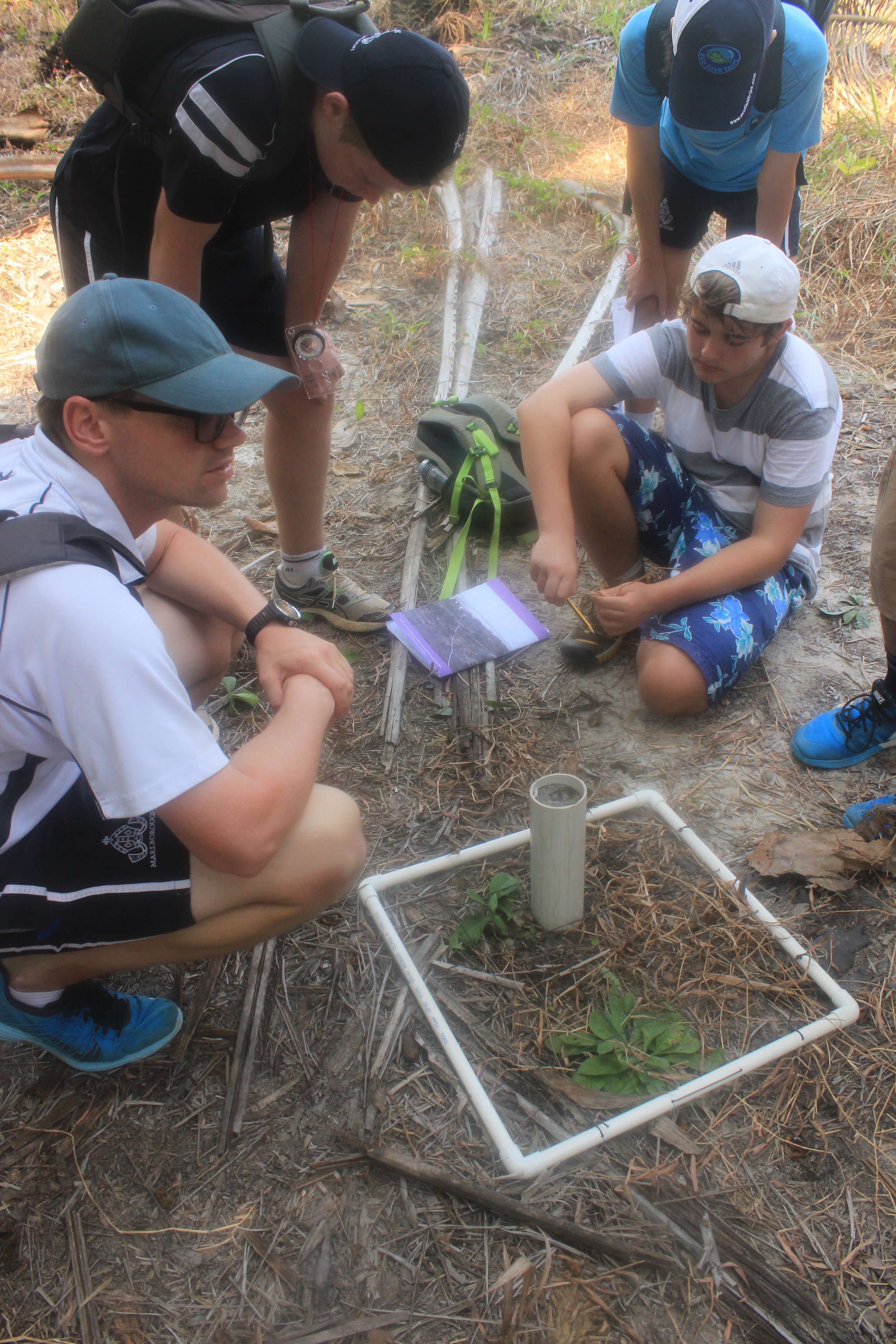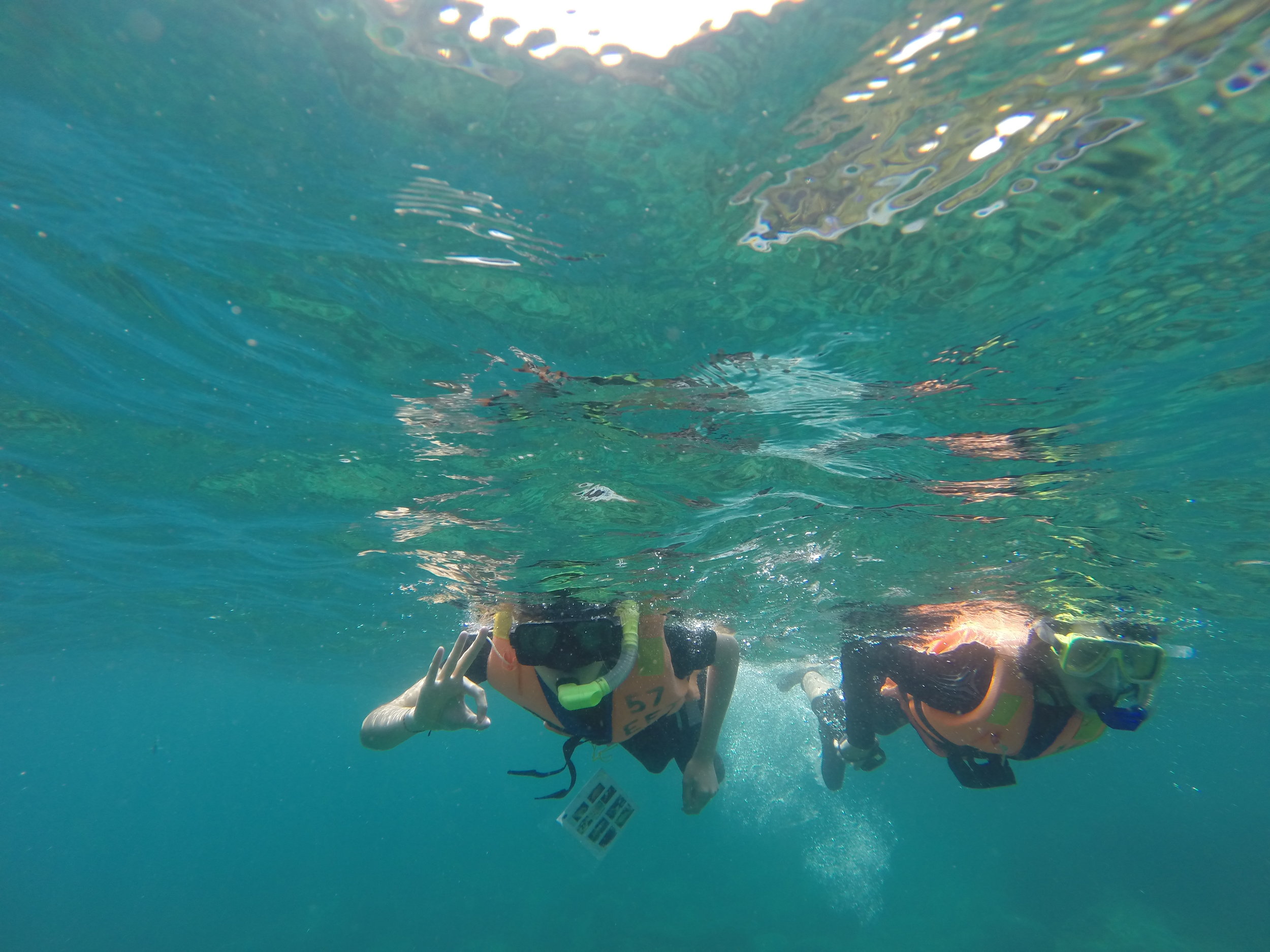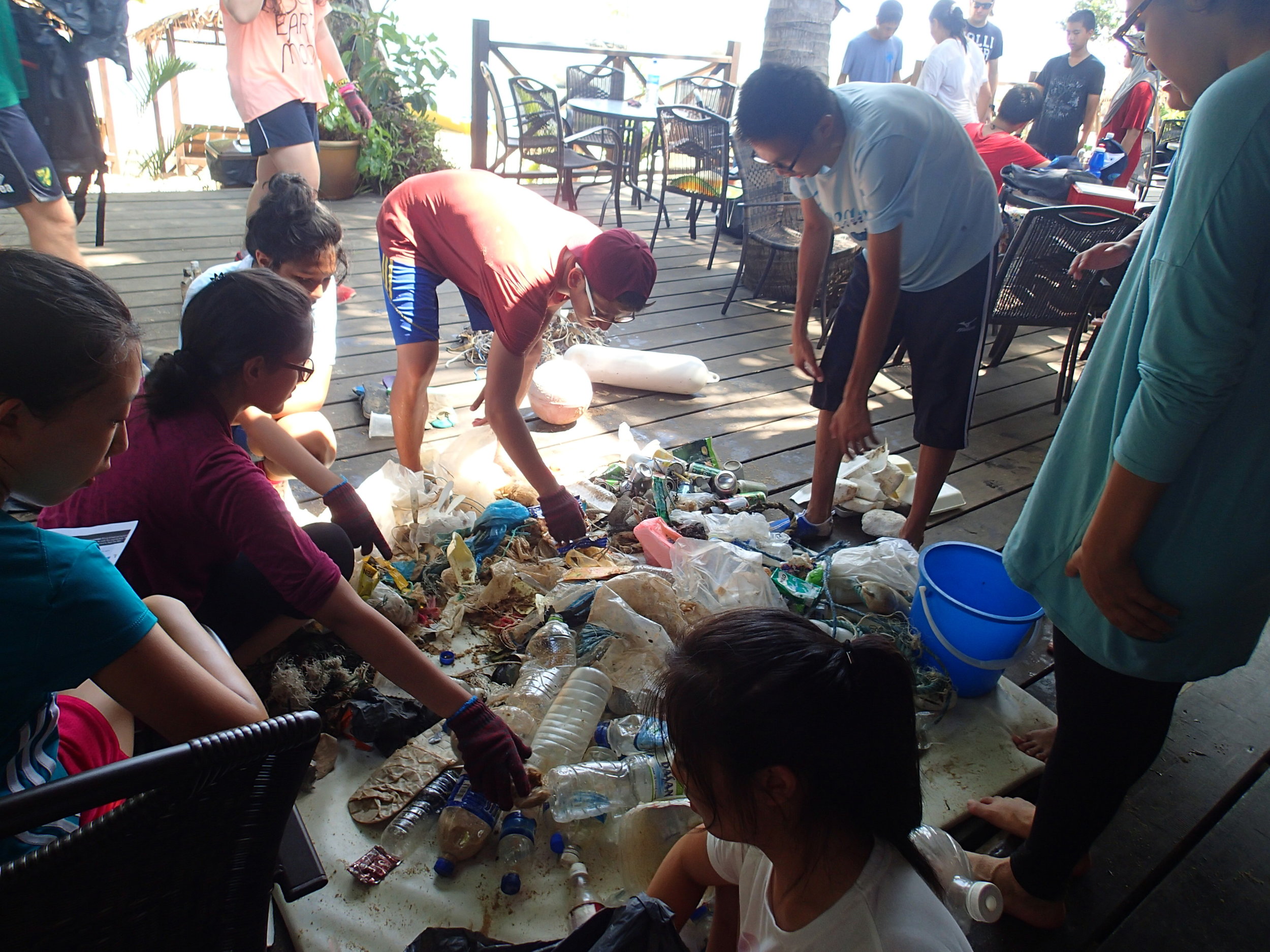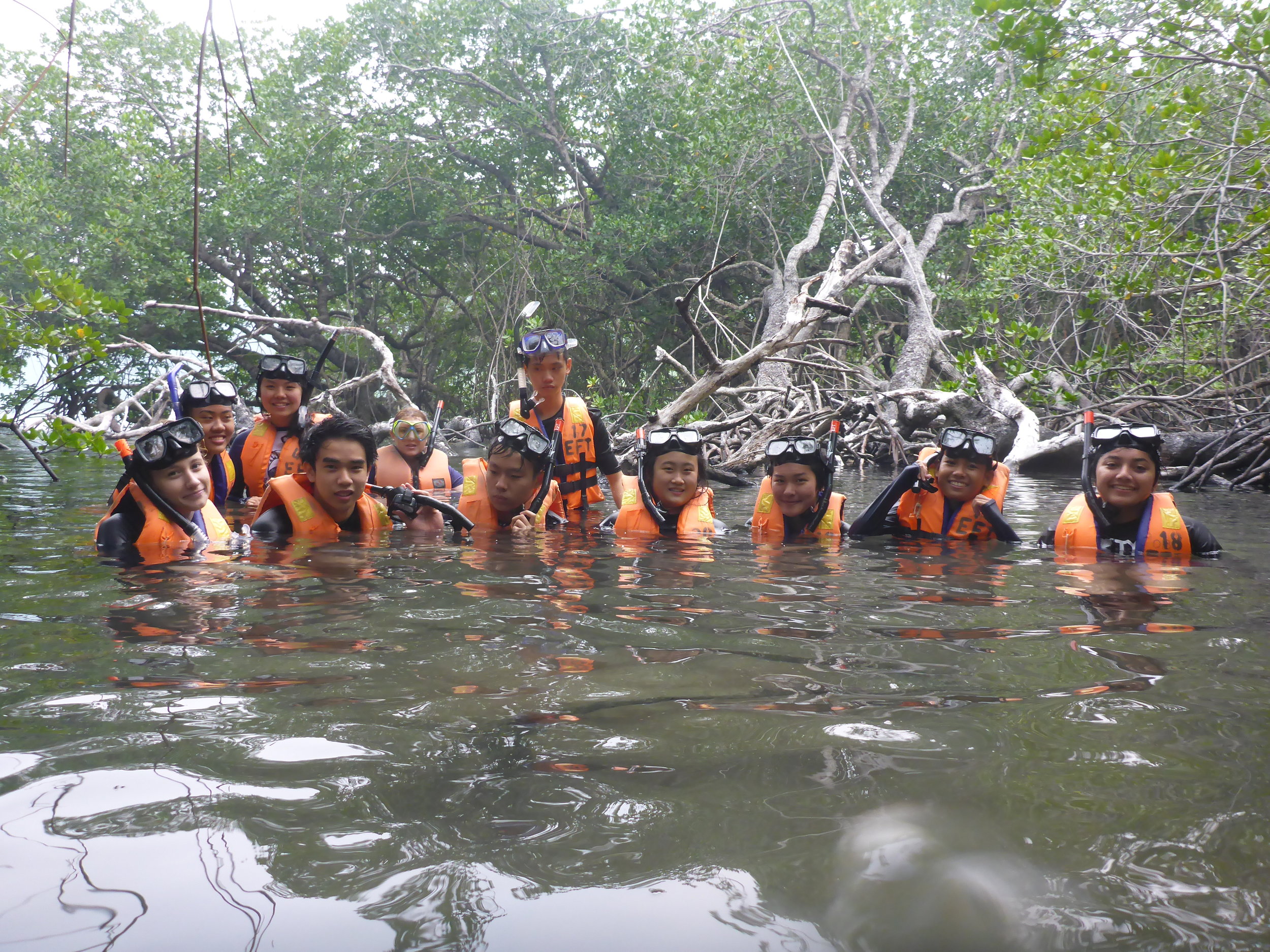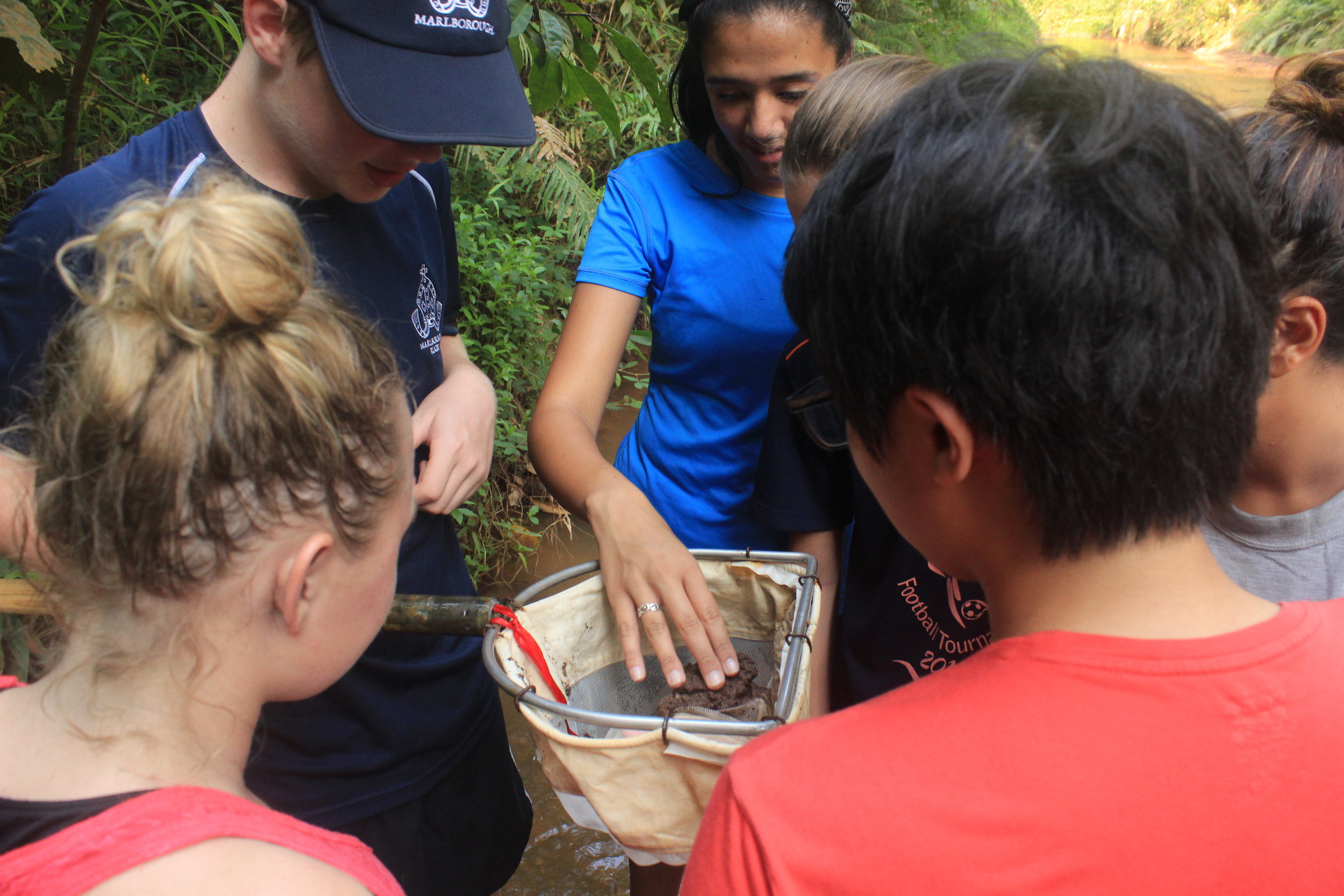BIOLOGY
Our tailored Biology trips bring syllabus topics to life and provide unique hands on experience giving students a better understanding of what they learn in the classroom. We can provide trips that incorporate a wide range of content or target specific syllabus points. Our trips can also be used to carry out coursework components freeing up vital time for teachers and students back at school. We immerse students in the full range of ecosystems South East Asia has to offer from rainforests and mangroves to intertidal zones and coral reef.
Using a range of sampling techniques we can assess animal behaviour, populations and ecosystem interactions. We are able to cater for a wide range of syllabuses including iGCSE, PSLE, O-Level, A-Level, IB (PYP, MYP and Diploma) and Advanced Placement. Depending on the syllabus and age group we can cover a huge range of topics, including but not limited to: adaptation and evolution, classification, food webs, symbiosis, succession, ecology, and conservation.
“The EFT staff were, as always, exceptional. Their knowledge of the ecosystems, the syllabus and the internal assessment criteria was excellent and they could not have been more helpful. Our students were able to learn lots from them, and complete excellent quality assessments with their exceptional guidance.”
Geography
Able to focus on both human and physical geography, these programmes can be tailored to meet your exact learning objectives, whether they be part of the iGCSE, IB or a range of other curricula. Our on-site qualified geographers are able to facilitate a comprehensive range of field studies for all age groups. Trips can incorporate both data collection and analysis, allowing students to complete key components of their syllabus in an inspiring outdoor setting. Please look at the table below to see which of our locations suits your needs the best.
“The Biologists and Geographers were clearly fully familiar with IB internal assessment requirements and extremely knowledgeable. Their relationships with the students were open and friendly but firm and efficient. All presentations and the booklet both complied with IB requirements and were extremely interesting and useful. All arrangements, despite being quite complex, went smoothly and were well organised. ”
Environmental Systems and Societies
Working in a range of beautiful yet threatened locations, our trips are perfectly positioned to meet the criteria for the fieldwork of Environmental Systems and Societies. We demonstrate how some of the most important issues threatening our planet can be seen from day to day. We example the impacts of the tourism industry, monocultures, how species loss is leading us towards a loss of some of our most vital ecosystem services as well as looking at the effect microplastics are having on global food webs. Using a combination of experiential learning and data collection we allow students to break down global issues into local actions.

